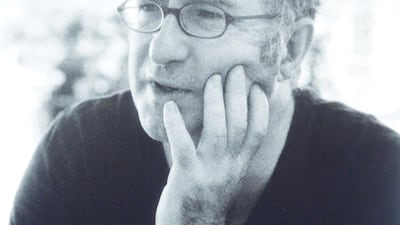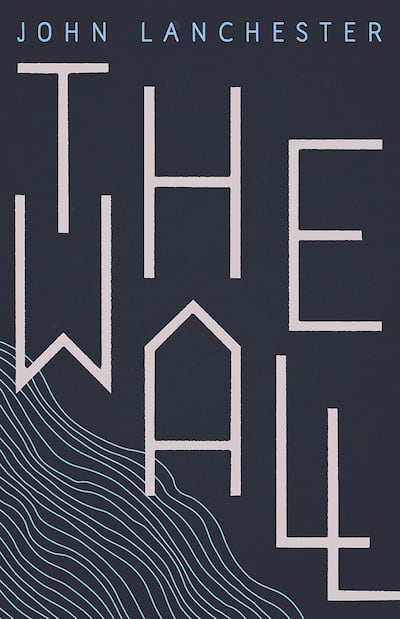John Lanchester's dystopian thriller levels such a punishing blow because, unlike sci-fi yarns set on faraway planets hundreds or thousands of years in the future, it plays out on Earth, maybe 50 or so years from now.
Ultimately, it's a projected snapshot of a dark and desperate world that climate experts, and authors such as Mark Lynas, who wrote Six Degrees: Our Future on a Hotter Planet, say could be much like our fate if global average temperatures rise four or five degrees above normal.
The Wall is a story told by protagonist Joseph Kavanagh, an unexceptional twenty-something born into a world convulsed by the climate crisis. His contemporaries refer to the apocalyptic catastrophe of the recent past simply as "the Change", which altered the world dramatically, for the worse. Seas have risen so high that former coastlines and islands everywhere are submerged. A giant concrete wall keeps the water at bay.
The country or territory in which Kavanagh lives is never named, but it's the homeland of the better-off of the post-Change world, most probably a latter-day Britain. Among the lesser of its deprivations are acute commodity shortages: chocolate and coffee, or anything else that was once imported, is no longer available. One woman, a professional cook, laments that "turnips, turnips, and turnips" is what she has to work with – when in season. She contrasts it bitterly to the world her parents knew, where you had "everything all the time".
In general, parents who had it good and did nothing to stop the Change come in for hefty abuse. They don't dare mention the luxuries they once enjoyed, such as beach holidays. The generational critique of the Fridays for Future kids has long turned to abject loathing. Kavanagh's generation is so acutely aware of the discrepancy that they choose not to reproduce. "Who'd want to bring a child into this world?," asks Kavanagh rhetorically. The job of procreation is thus assigned to "Breeders", who win privileges for the service. Kavanagh thinks it might be his way into the elite.
But the many hardships of this new world pale in comparison to those of people elsewhere, across the seas beyond the 10,000-kilometre wall. They're referred to as "Others", and aren't given a face for more than half the book. For these unfortunates, as the character of a contemporary politician describes them, "the Change did not stop. The shelter blew away, the waters rose to higher ground, the ground baked, the crops died, the ledge crumbled, the well dried up. The safety was an illusion."
This, he explains, is why "the unfortunates must flee again, and they have begun again, in numbers, like the numbers from many years ago when the Change first struck". This is why "the Others are coming", he says.
The politician tells this to Kavanaugh and his unit, who are "Defenders" on the wall, otherwise known as the National Coast Defence Structure. In addition to keeping out the waters, the wall surrounding the country fends off the Others, whose existence somewhere across the ocean is so destitute that they'll stop at nothing to breach the wall. The Defenders' task is to protect the bulwark during 12-hour shifts with machineguns and grenade launchers, a miserable, agonising, tedious assignment that young people on the dry side must take on for two years. But as much as they abhor the job itself, they don't question the necessity of their remit.
Nor do they question the computer chip implanted in their arms, which distinguishes members of their civilisation from the Others, who might have made it into their country. And they don't think much about "the Help" either; former Others who now live in indentured servitude, at the bidding of the wealthy. They also accept the justice of the punishment doled out to Defenders who fail in their mission, namely those who, regardless of the circumstances, allow an Other to make it past their station. For every Other that makes it over the wall, one Defender is put to sea in a raft and abandoned.
A bloody Others' surprise hit on the stretch of the wall defended by Kavanaugh's unit upends his life completely, turning the tables on the young man who accepted his lot with no less critical repose than his parents did.
The Wall is a grim page-turner and a thoughtful take on the climate crisis, even if there are many such dystopian works of fiction on the market these days. Lanchester manages to reflect, darkly, on many of our world's most burning problems, such as migration, climate change and populism. The worst-case scenario has all the makings of a politically charged film or television series along the lines of The Handmaid's Tale.
Yet, unlike Margaret Atwood's story, there's not the slightest glimmer of hope anywhere in The Wall. Obviously, the parent generation is guilty for not reacting to the climate crisis differently, which implies that it had the agency to affect another outcome, but didn't utilise it. Kavanagh and his contemporaries can do nothing but make the best of things.
This is why The Wall comes in a distant second to my favourite dystopian story, Dr Seuss's The Lorax. When the fields and the trees have all been destroyed, the lakes polluted, the bears and the birds chased away, the Lorax, the voice of nature, is left alone. Before he exits the devastation inflicted by a money-obsessed entrepreneur, he leaves a one-word message to future generations written with small stones. It is: "unless."


